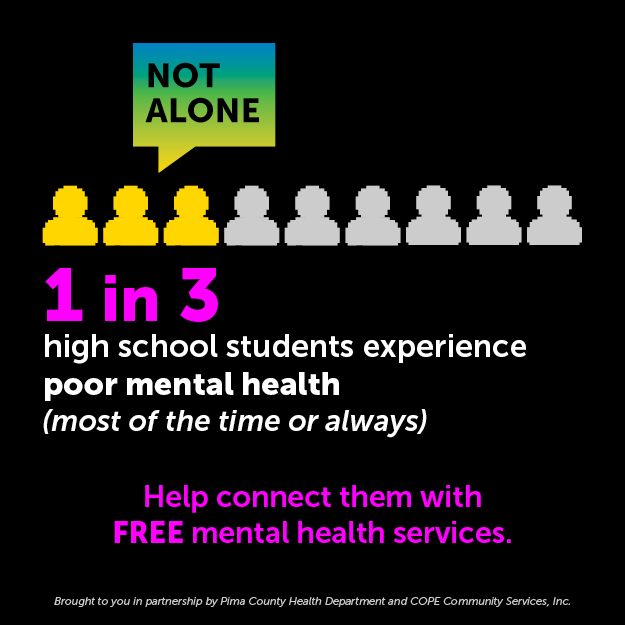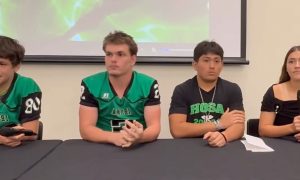The civil unrest in Burundi, from where her parents are from, has not allowed Kezia Ahimana to step foot in the landlocked central African country that is smaller than the size of the Chicago metropolitan area.
Her parents fled to neighboring Tanzania before Ahimana was born. They have harbored the hope of creating a better way of life for their 10 children including Kezia, who is a budding soccer player.
Five years after coming to Tucson as a refugee with her immediate family, with the aid of the International Rescue Committee (IRC), Ahimana is close to realizing her dream of going to Burundi for the first time and becoming a member of the country’s national soccer team.
Sunnyside girls soccer coach Josh Burton, who also serves as the FC Sonora club coach, got the ball rolling for Ahimana to be considered for the Burundi national team. Ahimana is a forward and defender with FC Sonora.
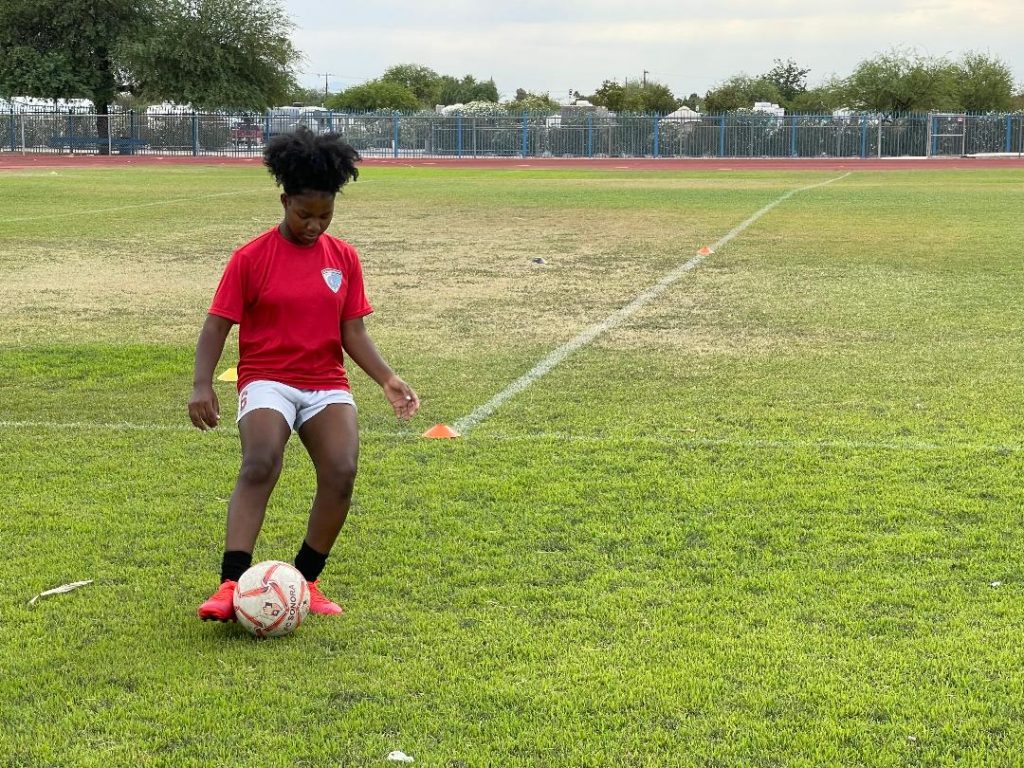
Burton first searched for the Burundi soccer federation’s Web site and found the name of head coach Dany Niyibimenya to contact via Facebook messenger.
“I told her, ‘I have this kid that’s from Burundi. I know, you guys probably aren’t like a huge country, but I have film for her already,'” Burton said. “I had put together highlight films from games that we recorded from club, and then I sent it to her. She said, ‘Your player looks pretty good. I have to talk to the federation to see what the rules for nationality are.’ She she said she would let me know.
“A few months later, I got a message from the coach, and one of the players on the team direct messaged me on Twitter, and said, ‘Hey, who’s that player you told us about? Do you have her WhatsApp (a live communication app for smartphones)?’ And so at that point, I kind of just talked to Kezia and said, ‘Hey, are you cool with this? They want to talk to you.’ And it went from there.”
Ahimana is slated to fly in early October to Burundi, which is more than 9,000 miles from Tucson, to take part in the 2022 Africa Women Cup of Nations qualification games. Burundi’s first match is Oct. 18 against Eritrea.
“It’s a dream coming true, being a part of my home country, where my parents grew up,” said Ahimana, who will be a senior at Amphi High School this coming school year. “To go from here to down there, it’s a dream coming true.”
The process for Ahimana to get cleared to return Africa is underway with Vicky Bradley, who has long assisted refugees who come to Tucson, doing the legwork. Bradley, a former clinical therapist with the IRC, tutors the refugees and transports them to practice and games for sporting events and also to performances for those who are engaged in fine arts.
She will serve as Ahimana’s escort if and when the trip to Burundi comes to fruition.
“We don’t have any guarantee that we can get in,” Bradley said. “She has a green card and not a passport. There’s a lot to be worked on because I’m not a relative and she is a minor, and we’re going into a country that is pretty renowned for conflict.
“It’s a country that historically has had a lot of conflict, but a lot of African nations are changing for the good.”
The Guardian published a story in 2016, at the time Ahimana’s family came to the United States, that mentioned nearly 240,000 people fled Burundi to neighboring countries when former President Pierre Nkurunziza announced he would run for a third term, despite a constitutional two-term limit.
The UN warned earlier that year that “a complete breakdown of law and order is just around the corner” with reports of atrocities including gang-rape, enforced disappearances and the digging of mass graves.
According to Human Rights Watch, between September 2017 and 2020, almost 100,000 refugees returned to Burundi under the UN refugee agency-backed assisted voluntary repatriation program, most of whom returned from Tanzania.
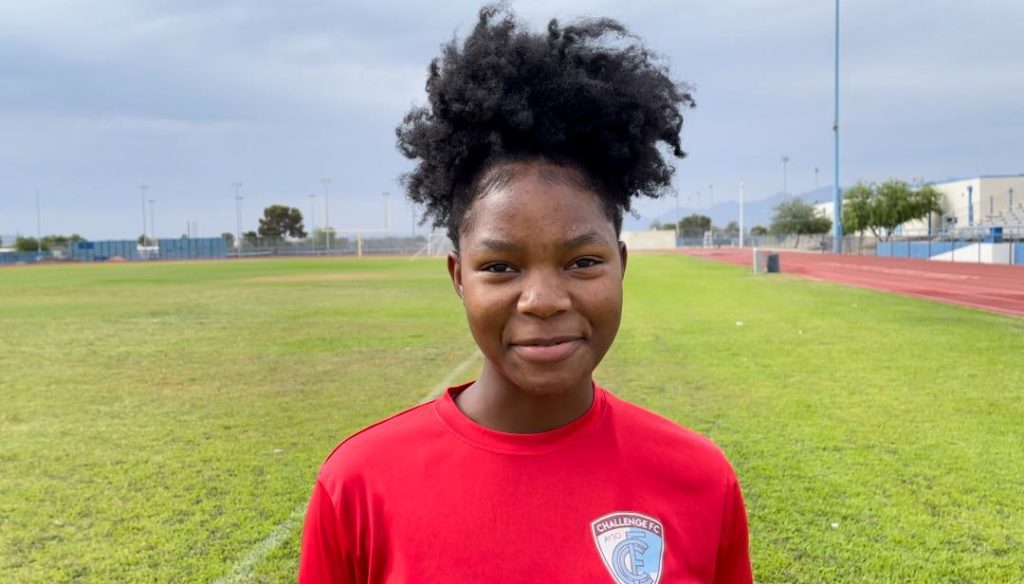
After the May 2020 elections, with Nkurunziza no longer in power, the UN refugee agency began facilitating returns from Rwanda, Namibia, and Congo.
Women’s soccer in Burundi is underdeveloped. A senior national team, of which Ahimana will be part of, has largely been inactive.
Women face inequalities in general there, including limited access to education.
A national women’s soccer program did not exist in Burundi until 2000, and less than 500 players have registered for participation on the national level by 2006.
In the Guardian article, the father of one of the soccer players trying to establish herself there was quoted as saying, “Fifteen years ago, if a girl played football, you would say she’s a disgrace to the family. Today, it’s normal.”
“Africa and America are so different,” Ahimana said. “Here, we have the potential as girls to play soccer, but down there, soccer for women and for girls, it’s not much.”
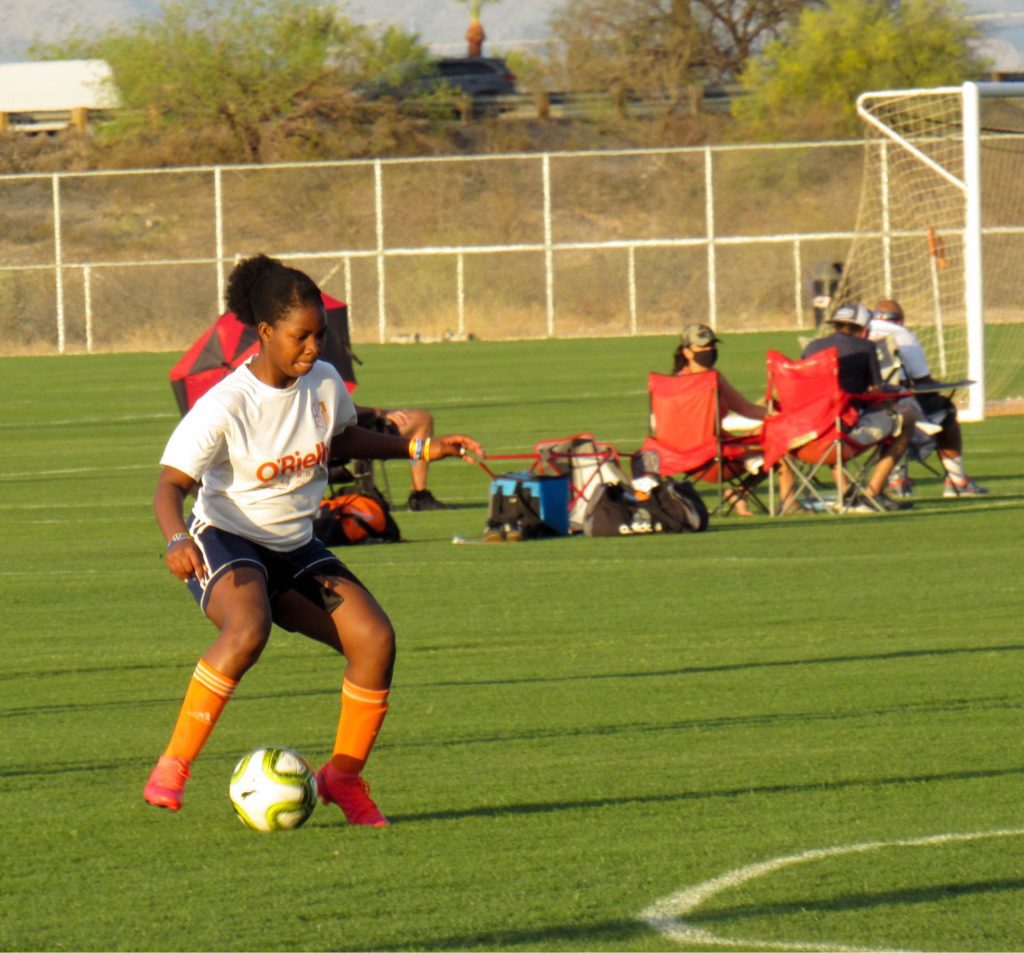
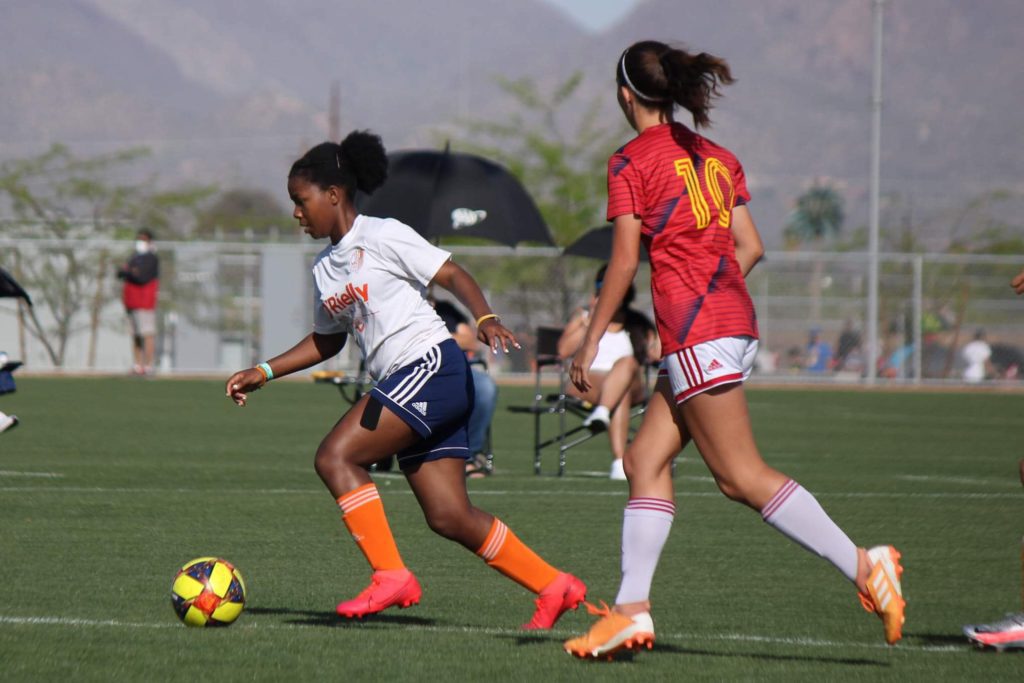
Ahimana comes from a family lineage of male soccer players including her grandfather who played in Burundi. Her brothers and sisters also play the game.
When they arrived in Tucson, some members of the Ahimani family joined the American Youth Soccer Organization (AYSO) Region 350. That Tucson-based organization has taken in numerous refugees since 2011.
Bradley estimates nearly 40 refugees were part of AYSO 350 as recently as 2019. The COVID-19 pandemic last year caused a reduction in activity.
Jonathan Chibasa, the refugee school impact coordinator at Lutheran Social Services of the Southwest, is also instrumental with his refugee resettlement agency to get young students involved with different facets of the Tucson community (including AYSO). He came to Tucson 11 years ago as a refugee from Congo.
“The Tucson community is very unique and happy to meet new people,” Chibasa told the Arizona Daily Wildcat in a February 2020 article. “They are welcoming and want to engage people, to know what they’ve been through, and want to use their resources to help.”
The work of Chibasa and his organization and the AYSO, and the attention and aid Bradley gives the refugees has proven results of countless students progressing admirably with their lives in the United States. Bradley said many of the refugees want to return to Africa after getting a college education here to aid people in their native countries, especially in the medical field.
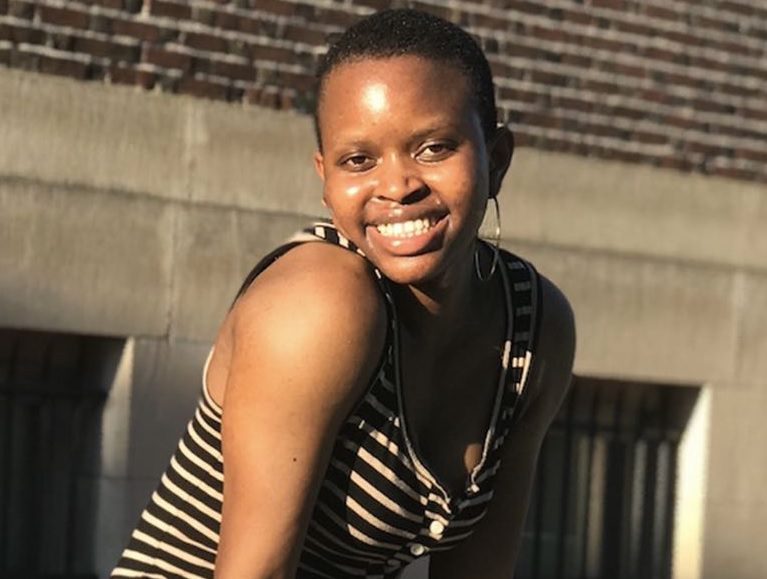
One example of a refugee who has flourished is former Amphi tennis and soccer standout Marie Nzeyimana, who is from Burundi and fled that country by foot with her mother when she was 4. They walked more than 500 miles to Uganda in horrific violent conditions witnessing the deaths of grandparents, uncles, aunts and siblings.
The IRC sent Marie and her mother to Tucson in 2012. Marie eventually became an honor student and one of Amphi’s best tennis players.
She is now in her second year at Bowdoin College in Brunswick, Maine, learning to become a medical scribe in hopes of working in that capacity as she studies. She recently served as an intern for Maine’s Emergency Action Network in which she helped provide families with school supplies, clothing and living essentials.
She also helps with an English language program for teenage asylum seekers in Brunswick, aiding those in need similar to how she was assisted in Tucson after coming here as a refugee.
“Having gone through the process and realizing how stressful that was to me, I wanted to be a layer of support for people going through the same process,” Nzeyimana told the Bowdoin school newspaper.
Through Ahimana’s development with AYSO, she has engaged in club soccer competition in addition to being part of Amphi’s varsity team since she was a freshman.
She became a member of FC Challenge in Oro Valley in 2019 but the team disbanded last year because of COVID-19. She then joined Burton’s FC Sonora team along with some of her FC Challenge teammates.
Ahimana views the opportunity to play for Burundi’s national team as a way to open more doors for her soccer and education. She presently intends on attending Pima College and playing for the soccer team there but has yet to be offered a scholarship and make a commitment.
“With me being a senior that will also give the coaches here, for me to go play in my country, it will give them more attention to, ‘She went to go play in Burundi so we want her to go play for us,'” Ahimana said. “By playing in Burundi, by playing down there, it’s going to give a lot of attention to a lot of coaches.”
Burton picked up on Ahimana being a “proud Burundian” despite her family’s troubled past there, forcing them to flee to Tanzania. Her pride for representing the good in Burundi culture matched with her competitiveness made it logical for Burton to reach out to the country’s national team.
“Kezia has always been a really competitive player,” he said. “She enjoys playing any time she gets the chance. I know that she’s a proud Burundian. To my knowledge, she is the only international player that’s being called up to the Burundi national team. All the other players live there.
“I know she likes to represent her country a lot. Once I learned where she was from, I put the time in after the fall season to help her get on the national team. I thought it would be a good gift for her to show her what she can do.”
FOLLOW @JAVIERJMORALES ON TWITTER!
ALLSPORTSTUCSON.com publisher, writer and editor Javier Morales is a former Arizona Press Club award winner. He is a former Arizona Daily Star beat reporter for the Arizona basketball team, including when the Wildcats won the 1996-97 NCAA title. He has also written articles for CollegeAD.com, Bleacher Report, Lindy’s Sports, TucsonCitizen.com, The Arizona Republic, Sporting News and Baseball America, among many other publications. He has also authored the book “The Highest Form of Living”, which is available at Amazon. He became an educator five years ago and is presently a special education teacher at Gallego Fine Arts Intermediate in the Sunnyside Unified School District.






